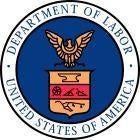Today, I signed joint declarations with ambassadors from the governments of Honduras, the Philippines, Peru and Ecuador. Under these agreements, the Labor Department will collaborate with these countries’ embassies and consulates to reach out to migrant workers and their employers and educate them about U.S. labor laws.
Just two years ago, we had signed only one such partnership with Mexico. The number grew to six in late 2010 with the addition of Guatemala, Nicaragua, the Dominican Republic, Costa Rica and El Salvador. And today’s agreements bring the total to ten.

Secretary Solis discusses the impact of new partnerships on workers’ rights during a signing ceremony with Ambassador Nathalie Cely of Ecuador; Ambassador Harold W. Forsyth of Peru; Ambassador José L. Cuisia, Jr. of the Philippines; and Ambassador Jorge Ramón Hernández Alcerro of Honduras.
Our motivation for signing this agreement is straightforward: If we allow some employers to jeopardize, exploit and underpay their workers, we encourage other companies to do the same to stay competitive. When that happens, all working people lose. Yet, when businesses are encouraged to provide lawful wages and safe work conditions, everyone wins. It’s smart government policy and it’s consistent with our values.
Our partnerships with embassies and consulates help us enforce laws that protect all workers, including U.S. citizens. They remove the incentive to hire and exploit workers who are unaware of rights or afraid to complain.
In addition, the partnerships help the Occupational Safety and Health Administration reach vulnerable workers in dangerous industries with information that can prevent accidents and save lives. Bureau of Labor Statistics data bear this out. Roughly half of the foreign born workforce is Hispanic and these workers are 47 percent more likely to die from workplace injuries than the general population.
Our partnerships also help ensure that workers who do hard jobs, for long hours and low pay, receive the wages they have earned. Enforcing minimum wage laws rewards companies that play by the rules. And, it has enabled our Wage and Hour inspectors to recover millions of dollars in back wages.
Each person we have helped has a story – like a Mexican man who obtained a work visa and came to this country to provide for his family back home. He worked long hours every day as a landscaper with the hope of saving enough money for Christmas presents for his seven children and a down payment on a small piece of land. But every payday, his employer confiscated a significant portion of his wages. As it turned out, this employer forced all of his Mexican employees to pay him kickbacks, or they would be fired and sent home. Our Wage and Hour team recovered those lost wages and stopped this illegal behavior. The astonished man told our investigator: “I never thought that justice would be served for us—foreign workers.”
I’m so proud we could help justice prevail. And I know today’s signing will lead to more success in our mission to protect all workers in the US.
From Dept of Labor (Work in Progress)


 />i
/>i
